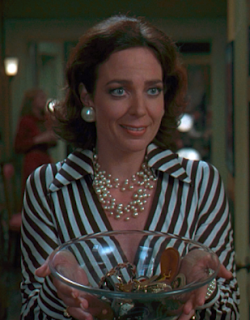Classic Film Review: Titanic
Dennis's Review:
I was thirteen when Titanic came out, and, to date, it has been the biggest movie of my lifetime, a colossus that totally dominated pop culture in the same way that Gone With The Wind had. Given the march of technology, the atomizing of culture, it was probably the last time a movie will ever accomplish that feat. Titanic was the last time for a lot of things: it was the last time a movie set in our reality topped the worldwide box office (since then, the year-end winner has been either science fiction or fantasy); it was the last Best Picture winner to feature a love ballad; it was the last great melodrama, a genre whose tradition stretches back to the very beginning of Hollywood. Titanic was the end of something in the same way its maritime predecessor was, the crown jewel of a dying Golden Age.
The first thing that strikes you about Titanic is how successful it is at showing the very big and the very small and placing both in proper perspective. The then-revolutionary CGI images of the ship give you a sense of the scale of the thing while the incredibly detailed interiors show how it works. In an early montage, we are taken from the heavenly top-decks, where the captain gives his orders, to the hellish bowels of the ship, where strong men endlessly shovel coal to keep propellers moving, and finally to bow, where a young and beautiful Leonardo DiCaprio hangs off the prow to experience a simulation of flight.
Titanic is not notable for its development of characters, but it does build communities, like an old John Ford film. We get a sense of three classes on board: the crew, the rich, and the poor. Their interactions and attitudes toward one another drive the action and give us the real drama of the movie, and their response to ultimate disaster reveal the character behind the values. Upper class solidarity and privilege doom the poor to their fate, while the crew is a mute witness, only intervening when the scale of the horror shocks their sense of duty and brings them in line with a kind of universal value “women and children first.” But within each community, we see their common humanity in facing death that transcends their class of origin: Molly Brown’s courage, Jack’s sacrifice, Rose’s indomitable will to live, the band’s fatalism, the panic of the crew, and the cowardice of Billy Zane’s Cal. The whole scope of the human drama is startling and magnificent.
The criticisms of Titanic come easily: the characters are flat and unreal, and the environment is sanitized. It’s true that Titanic doesn’t strive for realism, but that is a quality and not a demerit. Realism is a mirage that recedes as you approach it. The closer you get to showing something as it would appear to a time traveler witnessing the thing, the more you alienate the audience from the experience they would have if they lived in that time. Yes, Rose and Jack’s night of partying below deck is a little too clean and not what a real 3rd class party would have been like in 1912, but, surely, the lower class felt a sense of joy and fun in those occasions, and that is the sense you get. A realistic scene would have felt disordered and alien to a late 20th century audience. Similarly, the flat nature of the characters gives them an iconic quality. Jack is an unreal dream, the very image of True Love. Rose is an icon for transformation, of becoming what we are meant to be. That the movie resonated so deeply with adolescent girls is no surprise, then, and no sin.
Five Stars *****
Kevin's Review:
In an era of Hollywood cynicism, superhero blockbusters, and the shift of ambitious narrative artistry toward television, James Cameron’s Titanic is a reminder of what only cinema can do. It is a testament to the enduring power of Hollywood magic.
 |
| Picasso's meditation on sex and death, in a film where the ship hits an iceberg as the couple consummates their love. |
We know the ship sinks, just as we know we will someday die. To clarify that he knows we know, Cameron begins the film with a computer model demonstration of how the ship sinks. But the subjective experience of it: that is the part we didn't know, we couldn't know before, and that is the experience -- the descent -- we come ever-so-close to personally having via this magnificent film.
 Titanic is something of a Homeric oral epic, told by Rose as an aged crone – a Western tragedy of the conflict between the values of temporary material society and those of the mythic eternal, a conflict propelled by Pride, the greatest flaw of man, and witnessed and all-consumed by the endless wine-dark sea. There is an aspect of divinity to Rose and Jack, a touch of the archetypal, and when the two glow with romance under a dark dome of stars we are transported and transfixed.
Titanic is something of a Homeric oral epic, told by Rose as an aged crone – a Western tragedy of the conflict between the values of temporary material society and those of the mythic eternal, a conflict propelled by Pride, the greatest flaw of man, and witnessed and all-consumed by the endless wine-dark sea. There is an aspect of divinity to Rose and Jack, a touch of the archetypal, and when the two glow with romance under a dark dome of stars we are transported and transfixed.The film is deeper and more mysterious than its reputation for mere spectacle suggests. It is an endlessly re-watchable journey, an ordeal and an initiation. This is powerful storytelling -- and we feel, deeply and madly, its terrible, transcendent beauty.
Five stars *****




Comments
Post a Comment